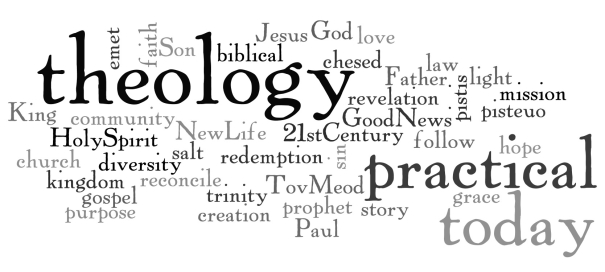Election seasons can be pretty frustrating. I was once part of a conversation involving people from opposite ends of the political spectrum. “Part of the conversation” meant I mostly remained quiet and listened, wondering what and if anything I had to offer. Then someone, noticing my silence, asked me what I thought. I responded that we might want to consider what God thought. Their follow-up question: “And what do you think God thinks?” I struggle during election seasons primarily because far too many of us are not willing to consider what God may think.
We tend to invoke Jesus’ name in support of our particular political ideologies but not necessarily inviting Him into the process of developing them. I watched a friend over the past several years become a serious follower of Jesus – giving Him permission to speak into his life, to grow his understanding of grace, to mess with and shape his ideologies.
As a result, I heard this friend say a few years ago that he was really struggling with how he should vote in light of becoming a thoughtful Christ-follower. In the past he may not have asked that question but simply voted his “party line.” What a novel idea – to ask Jesus how we might vote as opposed to telling him how we want to vote and assuming he agrees with us. Or not include him at all.
The conversation reminded me of an article I read in the old, now defunct, youth ministry magazine, The Wittenburg Door. The article was an interview with the late Brennan Manning, author of many wonderful books, including The Ragamuffin Gospel, Abba’s Child and Ruthless Trust.

What I remember about the interview was an interesting musing by Manning as he wondered when the liberals and conservatives might figure out that they are all in the same camp and are really in agreement. Manning suggested that what unites these opposite ideologies is the proposition that Jesus is impractical in the real world. Manning:
“The bottom line is that conservatives and liberals are united, the left wing embraces the right, Pilate and Herod becomes friends, and the one proposition that unites them is that Jesus is impractical.”
People tried to press Jesus into their civic political agendas and he would not allow it. In their mind, Jesus did not seize the opportunity to change the course of history. Jesus was political for sure – just not the way people wanted. He made it very clear that Caesar was not in charge. Nor was the high priest. The people’s attempts to draw Jesus into political debates on their terms fell short. He quickly reminded them, through his discourses, that they were pretty clueless about the grand scheme of things.
Likewise, our attempts to draw Jesus into our political agendas fall short. He’s on a different playing field. He is King of kings (king over all who think they are or should be kings) and Lord of lords (Lord over all who think they are lord over others). Because the resurrected Jesus humbled himself as a servant, even to the point of a criminal’s death, “God exalted him to the highest place and gave him the name that is above every name, that at the name of Jesus every knee should bow, in heaven and on earth and under the earth, and every tongue acknowledge that Jesus Christ is Lord…” (Philippians 2:9-11).
In free countries, we take elections very serious, as we should. But we must remember that it is God who is sovereign! He is sovereign over kings and dictators, over presidents and prime ministers, over liberals and conservatives and, yes, over nations. We take our privilege of voting very serious, but it pales in comparison to the privilege of knowing and following the King of kings.

❤️💕❤️
Thanks Curt. Good words🙂
LikeLike
Thanks, Tammy. Easier said than done, I suspect.
LikeLike